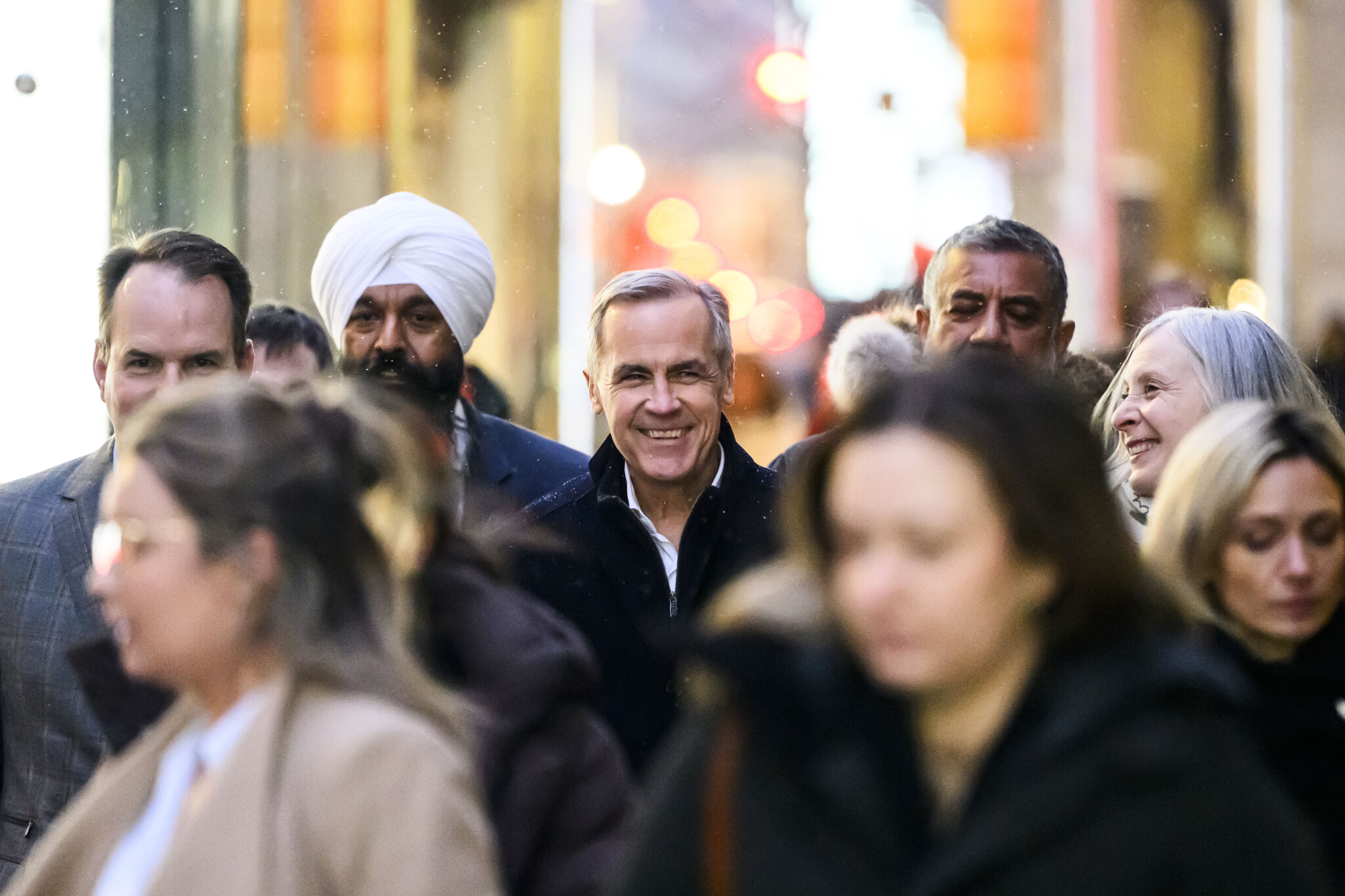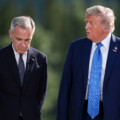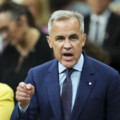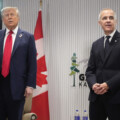The most important election in a generation will be fought over something no Canadian government has had to seriously confront in modern history: a direct threat to our sovereignty from the United States. Our largest trading partner and supposed ally is no longer just indifferent to Canada—under Donald Trump, it is actively hostile.
In any other era, this alone would dominate the election. But Canada faces this crisis from a position of profound weakness. Our economy has stagnated. Housing is unaffordable. Infrastructure projects are bloated, delayed, and over-litigated. Provincial dysfunction has left basic services failing and our economy balkanized. Our military is underfunded, under-armed, and under-respected—unable to properly defend our own Arctic, let alone project strength on the world stage. At precisely the moment we need national resilience to be at its highest, we instead confront a lost decade spent sleepwalking through decline.
For the past two years, Conservative leader Pierre Poilievre has capitalized on this decline. He surged in the polls by channeling public frustration—positioning himself as the leader who could fix a broken country, take on Trump, and restore the lost promise of Canada. But then Trudeau resigned. The old campaign strategy—making the election a referendum on Trudeau—became obsolete.
A real contest at the right moment
Enter Mark Carney, the former Bank of Canada and Bank of England governor (and former Harvard goalie) whose candidacy has revived the Liberals from the brink. Whether conservatives like it or not, Carney, who has positioned himself as the clear front-runner ahead of Chrystia Freeland, commands credibility, particularly among older Canadians who remember his steady hand working with former prime minister Stephen Harper during the 2008 financial crisis. Carney’s reputation as a competent economic manager has instantly brought competition to the race. From my vantage point, it seems like Mark Carney was engineered in a lab to match the sensibilities of voters in Central Canada.
Carney has said many of the right things so far (even things that have had Canadian conservatives nodding their heads)—promising to cut bureaucracy, empower the private sector, and “build” again. He has promised to balance Canada’s “operational” budget and seems intent on returning the Liberal Party back to its moderate roots. But rhetoric is cheap and his promises lack concreteness (for now). He has yet to prove he has the political will to make them into reality.
Canadians know the status quo has failed. We are no longer complacent. We are open to real change. The next prime minister will have an opportunity no leader has had in decades—to break Canada out of economic paralysis, dismantle the barriers holding back growth, and forge a future that does not depend on a zombified America. Poilievre and Carney must now prove they are ready to meet the moment. Their competition is giving Canadians the choice we deserve.
The fight Poilievre needed
One thing is certain: Carney’s presence has already forced Poilievre to be better. For years, the Conservative leader built his brand as an attack dog, dismantling Liberal failures with ruthless efficiency. But an opposition brawler is not a statesman. For Poilievre, his weekend’s “Canada First” speech marked a shift—the race was no longer just a referendum on Trudeau, and he hinted at a vision for true Canadian sovereignty.
“We will never be the 51st state. We will bear any burden and pay any price to protect our sovereignty and independence.”
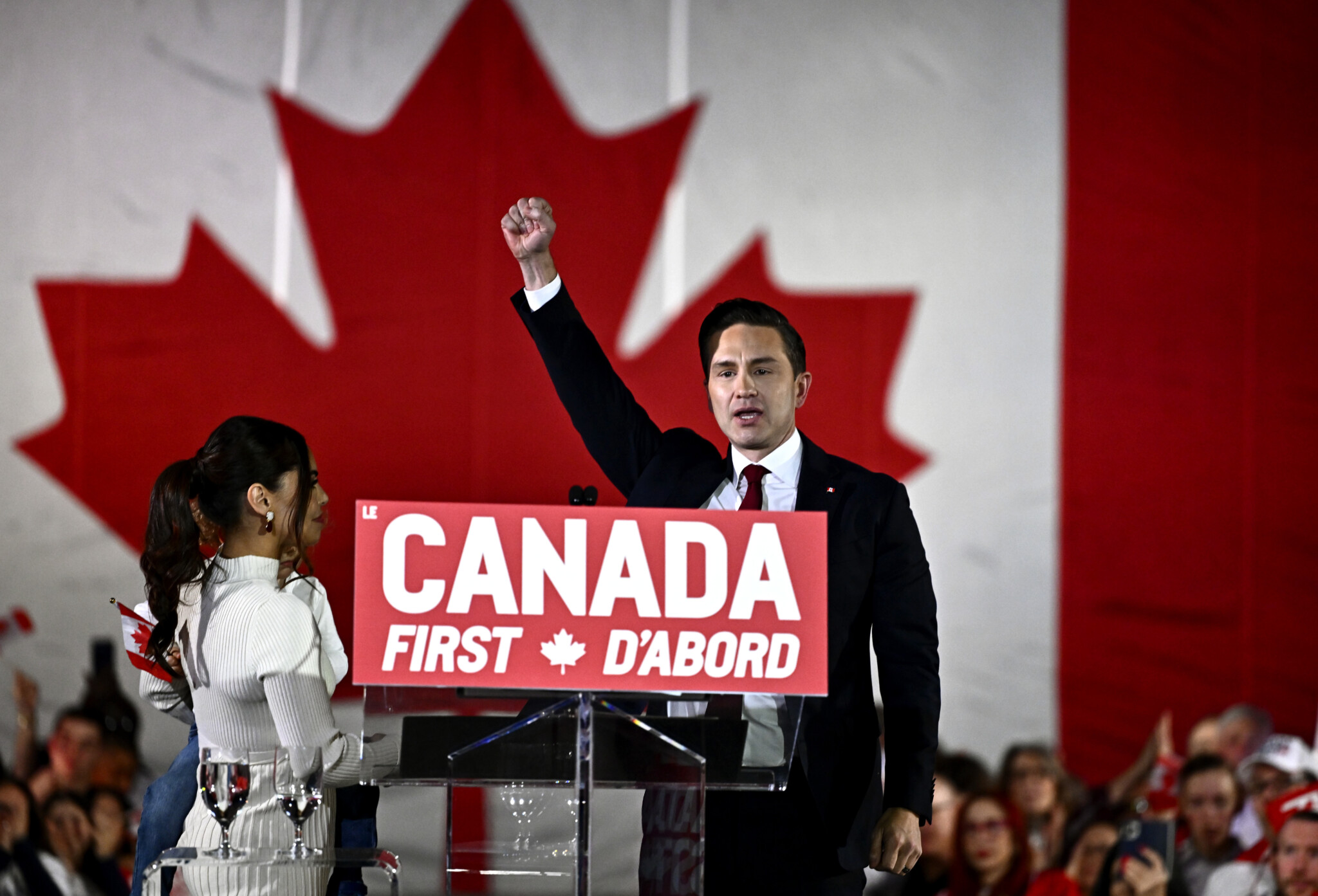
Conservative Leader Pierre Poilievre raises his fist as he concludes his remarks at his Canada First rally in Ottawa, Feb. 15, 2025. Justin Tang/The Canadian Press.
For Canadians skeptical that a Canadian government led by Poilievre would stand up to Trump—especially given the disturbing number of Conservative partisans still sympathetic to him—this speech should put those doubts to rest. Poilievre did not hedge, did not pander, and did not flinch. He made it clear: Canada will not be a vassal state. Economic aggression from the U.S. will be met with retaliation, leverage, and self-reliance.
But this was more than nationalist rhetoric. The speech was policy-heavy, outlining a plan to strengthen Canada’s economy, energy independence, and military capacity.
The dual forces of Trump’s threats and Carney’s challenge have given Poilievre the fuel he needed: a fight that has forced him to sharpen his message, deepen his vision, and prove he is not just ready to attack—but ready to lead.
Poilievre has shown he is prepared to fight for Canada with words. But can he fight for it with actions at home?
The window for reform is open—for now
This election will not just be about the strength of rhetoric—it will be about whether Canada can still function as a nation capable of governing itself effectively under immense pressure. The greatest obstacle to national renewal is not Washington. It is Canada’s dysfunctional provinces.
Canada’s biggest structural failures—a housing crisis, a failing healthcare system, crumbling infrastructure, and a fractured economy hampered by interprovincial trade barriers—are all problems that provincial governments could have addressed years ago, but have stubbornly refused to. Premiers are quick to demand federal funding, yet slow to embrace the difficult choices real progress requires.
National infrastructure projects remain hostage to provincial approval, halting pipelines and reducing economic development. Nowhere is the dysfunction clearer than in Ontario and British Columbia, where catastrophic housing policies have decimated affordability and upended the Canadian dream. Young people have borne the brunt of this failure.
Carney is courting older Canadians, but they may not realize that his snazzy slogan “It’s time to build” might also mean housing in their neighbourhoods. Will he tell them the truth?
Despite his rhetoric, Poilievre must also confront an uncomfortable reality: it is Conservative premiers and municipal councillors who are the country’s most stubborn NIMBYs. If he is serious, he will need to pressure his own political allies—starting with Doug Ford, who is likely to be re-elected despite his failures.
The next prime minister must realize that the public is no longer content to wait for the slow, bureaucratic non-results our premiers promise. They will need to lead the provinces to change, even if it means breaking political alliances and upending sacred cows. If they fail, so too may Canada.
A rare and necessary competition
The threats facing Canada—both external and internal—are real. A once-reliable ally now openly threatens our economy and sovereignty. The global order is shifting. Canada is dangerously unprepared and potentially alone.
But for the first time in my life, we have a real competition for the country’s future. A competitive race between Poilievre and Carney for prime minister is a gift. It forces them and us to be better. It empowers the next prime minister with the political capital to do their job. It gives Canadians a clear choice—not just about who can handle Trump, but about who can build the Canada we know we can be. This election won’t be about managing decline, it will be about who has the courage, vision, and competence to restore Canada’s strength, reform its economy, and reclaim its place in the world.
Both men will have to prove they are ready—not just to navigate the moment, but to reshape the country for the century ahead.
For too long, Canada has coasted on past success, believing our place in the world was secure. It is not. But if there was ever a time to turn national pride into national achievement, it is now. The stakes are high. The road ahead is hard. But the competition is real. And that is cause for hope.
